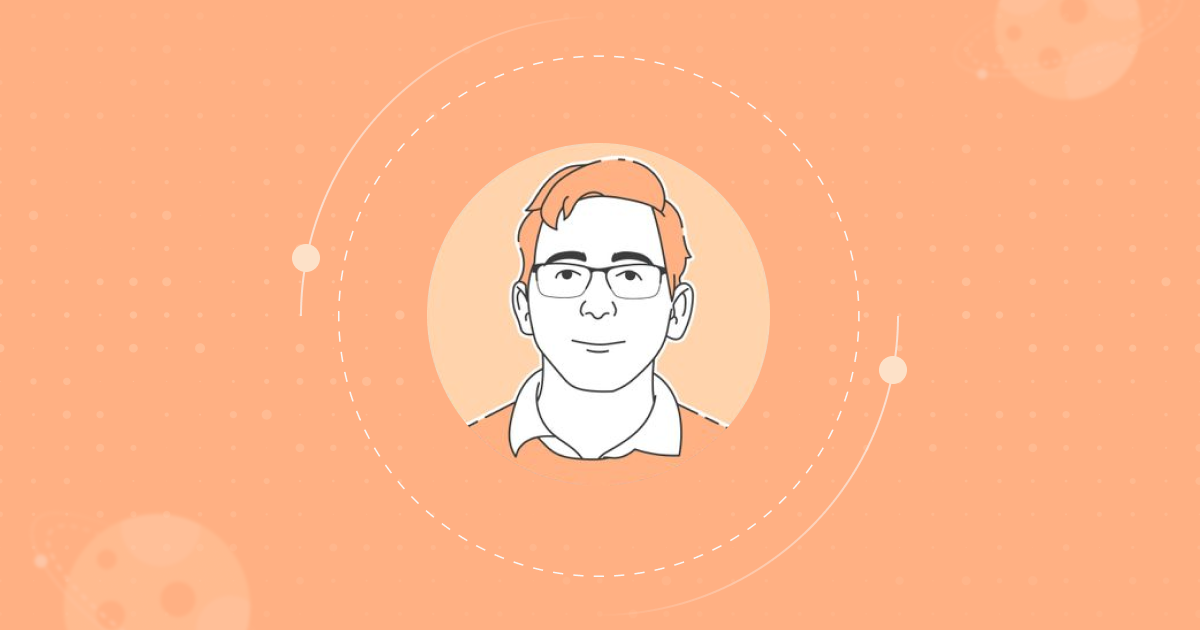
In 2014, Daniel joined the Budapest University of Technology and Economics to study software engineering as his major, but he didn't find the topic very interesting. "It's not software engineering problems that I wanted to solve, but use software engineering to solve other problems instead," he describes. The decision to major in mathematics led him to participate in a new exciting course: Introduction to Data Science. Mixing science and engineering to solve problems turned out to be the winning formula.
After finishing his Bachelor's, he was offered a part-time position at a research institute for natural language processing (NLP), where he got stuck for three years writing research articles. The academic setting didn't scratch the itch of solving problems hands-on; when the opportunity presented itself, Daniel joined a friend-of-friends company to build NLP services, where he was much happier. For the second time in his life, combining engineering with science was the right recipe.
But something was still missing from the perfect trifecta. For the past few years, Daniel was always participating in some form of activism against climate change, corruption, and wealth inequalities and wanted to use his technical skills to fight more significant socio-economic-environmental issues. At the beginning of 2022, he finally found the missing piece by joining The Upright Project.
The Upright Project

The Upright Project is a company building a platform for measuring and comparing the net impact of companies and products. It was founded in 2017 by two young but highly experienced entrepreneurs — Annu Nieminen, with a management consulting background, and Juho Ojala, an expert in machine learning. They wanted to help companies understand their net impact using an uncompromising scientific approach.
What does the "net impact" even mean?
Firstly — as the "net" part implies — it is the sum of negative and positive impacts. For example, a product can have a positive impact by making people healthier and a negative impact by generating manufacturing waste. It is never one or the other.
Secondly, there are four major categories of impact. People, planet, society, and knowledge are split into 19 subcategories like societal stability or greenhouse gas emissions. The model is unopinionated about "good" or "bad" and doesn't come with a political agenda built in. How subcategories are weighted is ultimately up to the user to decide.
What is built-in, instead, is common sense. Reporting on social or environmental impact often focuses on trivial topics. In contrast, the model at the Upright Project looks at the big picture and only at the big picture. For a practical example, the model doesn't care if a huge oil company uses recycled office paper or not.

Calculating true net impact is very ambitious, so how does it all work? The data pipeline continuously ingests massive public databases like Core — the world's largest open-access database for scientific articles — using natural language processing (NLP) to summarize new research and attribute it to products and companies.
What makes the model truly stand out is the ability to factor in the impact on the entire global value chain. The modern economy is more connected than ever, and no product or company is an island. Everyone uses resources and services from other participants upstream and delivers different ones to others downstream. For example, any new research on the impacts of microplastics is automatically applied to all companies using plastic by the model.

The Upright Project captures these relationships in a single massive graph of all products and services currently in global markets and correctly attributes the net impact between them, avoiding the pitfalls of double counting. Daniel hopes that one day the Upright Platform will become an open information database in a world where anyone can type "Tesla impact" in Google and receive trustworthy, understandable, and comparable information.
Working at the Upright Project
The platform backend and inference are built on Node, with integrations to dedicated services or REST APIs for more complex things like convex optimization, NLP, or bayesian inference. The company has dedicated servers in Finland but utilizes the cloud for some storage and more irregular inference needs, meaning there are many different infrastructures for Daniel to navigate.
Most of his time these days is spent on extracting information from semi-structured data. However, the full-stack developer's responsibilities are not over once the data is retrieved. The source, version, and other metadata need to be made visible and understandable in the UI, too, which requires working with the business teams to make sure everything makes sense.
Daniel praises the culture in the company and says the leads and managers are very good at focusing on the big picture without superfluous meetings stealing engineers' time. "Everyone is goal-oriented, and we avoid jumping through hoops to express ourselves. I am very happy that the developers, myself included, can offload all our organizing needs onto the team leads, " he says.
The future
When it comes to the future of machine learning, Daniel sees that transformers and their descendants, like BERT, will solve most of the NLP problems with a low-code approach. He sees that the focus will shift more and more to the data side. The demand for data engineers, pipelines, versioning, and all kinds of data-related infrastructure will grow faster than the demand for classic data science expertise.
As a final piece of advice, he recommends young enthusiasts learn software engineering concepts and not just tinker with models. Especially the academic setting doesn't lend itself to writing production-ready code, which will become a problem later in life. The best way toward cleaner habits is to drop your ego and find someone to critique your code. "If you think your code is perfect, but it turns out that others can't read it or adapt it, you have to swallow your pride and reconsider your decisions.", he says.
If you want to know more about the Upright Project, check out their website or follow them on Twitter, and don't forget that they are hiring, too!
